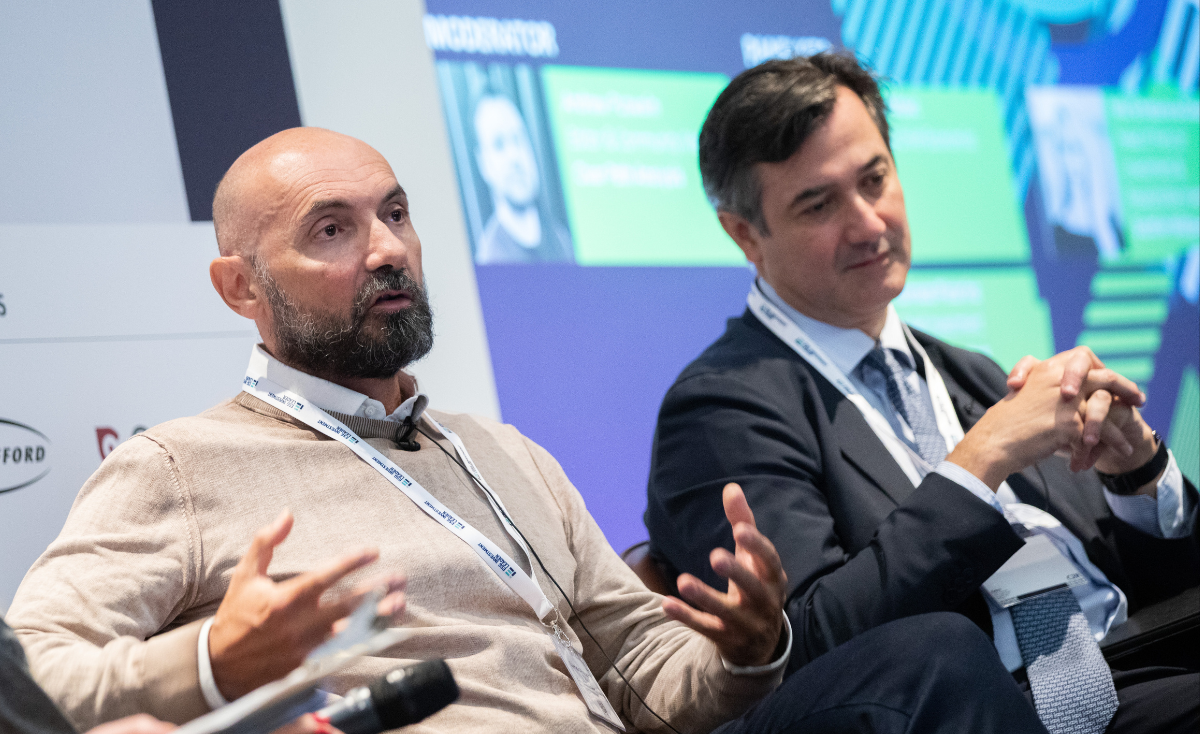
Whether or not sensitivity to ESG concerns makes for good financial returns for investment teams is a question that dogs the market, with many in the industry struggling to determine if it leads to better yields.
Corrado Pistarino, Chief Investment Officer, at Foresters Friendly Society, and Gilles Moëc, Group Chief Economist at AXA, said they both saw downsides and other issues in the debate.
“At its core, the conversation around ESG is a discussion about
internalising externalities.”
At a recent Clear Path Analysis event, “ESG Investment Leader 2022”, Pistarino and Moëc joined industry peers to discuss what values the market has gained – or has not gained – from ESG.
The pair were asked about comments about whether returns from ESG-focused investments were significantly better than non-ESG-compliant investments and whether the ‘societal good’ outweighs that element.
“I agree with [the] point that even if there are no additional ESG returns we will still do good for society,” said Pistarino when given an example of a business struggling to comply with ESG rules and stay profitable. “At its core, the conversation around ESG is a discussion about internalising externalities,” he added.
“Only governments can act to internalise externalities. So, if you’re concerned about carbon emissions, there’s only one thing to do: systemic, global, and pervasive action,” he said. “It could be a carbon tax, for instance. Global action is what we have just seen happening with Covid-19 and the rest is just chatter.”
"We want to understand what they’re going to do over the next three-to-five years
to fund moves toward good energy sources and away from bad areas."
The debate also covered finance’s long ‘green’ transition, and whether it’s realistic for most companies to issue a green bond – particularly when talking about the big polluters – when they could instead focus on transitional finance.
Moëc said we should look at an industry such as oil and gas and its attempts to transition – which the process of has been well-publicised - but has also garnered significant controversy over its pace and scope – when considering the relationship between transition and ESG investment.
“We are trying to select the companies we think will be part of the solution and not the problem,” he said. “We want to understand what they’re going to do over the next three-to-five years to fund moves toward good energy sources and away from bad areas.”
Moëc described the query as “a concrete question” for the industry. “What percentage of [the oil and gas companies] profit will be invested in renewable energies? Companies are increasingly willing to engage with these questions, even in the oil and gas industry. Three years ago, it was impossible,” he said. “Now, people are writing essays and producing strategies. We’re moving in the right direction, but it’s not perfect. It gets complicated with non-governmental organisations (NGOs) and the press, but I do believe we’re moving in the right direction.”
“We tell them from the start they have three years to convince us that
their transition makes sense."
However, in the knotty debate between divestment, engagement, and transition, Moëc said things were more complicated than they are often portrayed – especially when it comes to delineating concrete requirements and identifying red lines. “You have to have clear communication with companies. Otherwise, engagement doesn’t work,” he said.
“We created a three-strikes-and-you’re-out policy for selected companies with whom we engage. We tell them from the start they have three years to convince us that their transition makes sense. We won’t divest immediately – we’ll discuss and engage with them – but if after the three years we aren’t satisfied, we’re out,” he continued.
A firmer stance on companies when choosing the engagement route rather than divestment has long been asked for by NGOs, campaign groups, and other third parties that argue financial firms are too lenient when goals are ignored and deadlines are missed when it comes time to ‘green’ a business.
“We launched the policy [in 2022], and all the companies we contacted responded quickly. There seems to be awareness, even in the most problematic areas,” said Moëc.